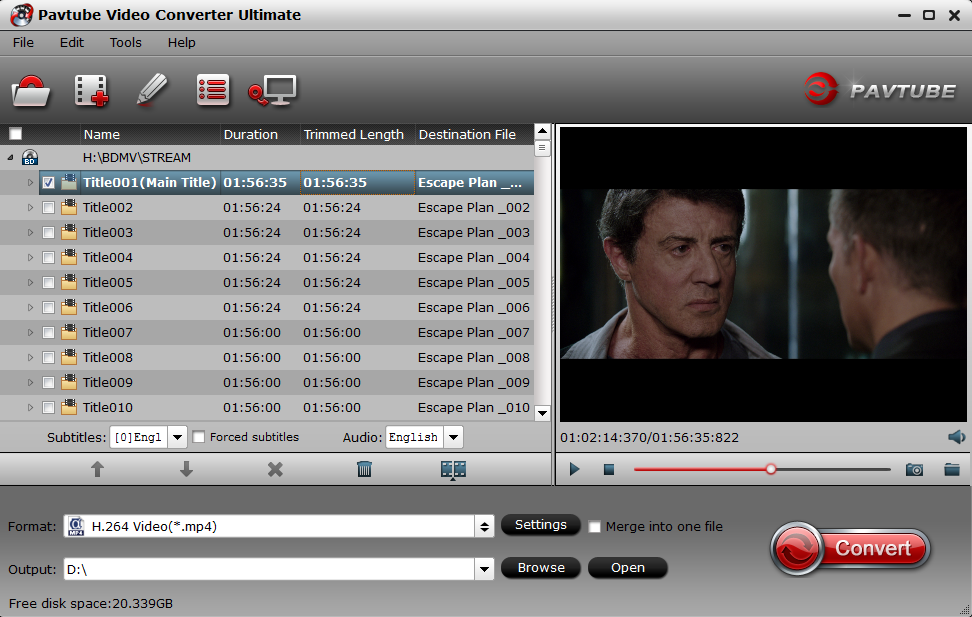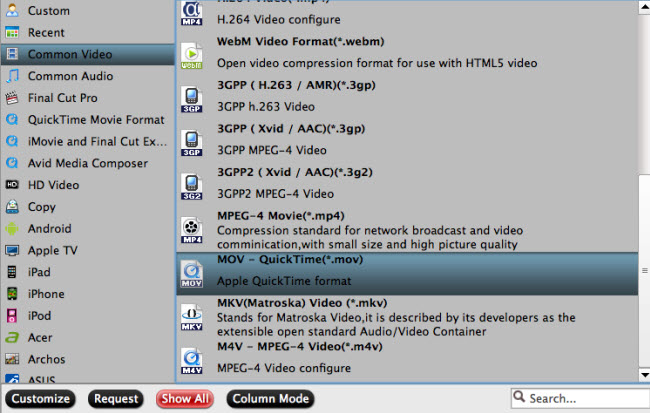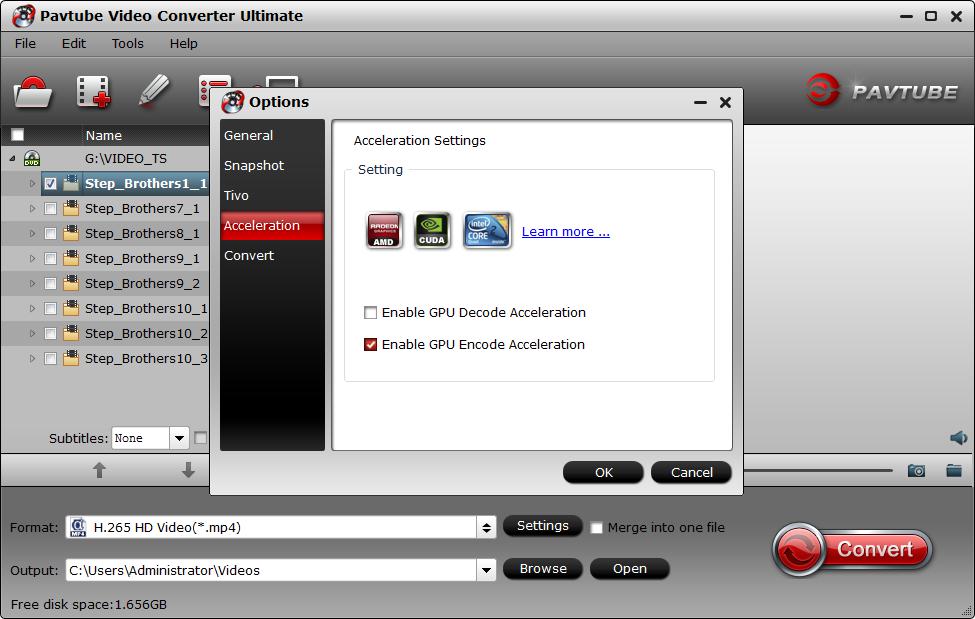DJI has announced Mavic Air for many days, many DJI lovers are hesitating to buy this drone or not. The new $799 Mavic Air shares a lot of similarities with both the DJI Spark and the Mavic Pro and Pro Platinum. Like those models, it’s a compact drone with a 12-megapixel camera and a handful of different flying and shooting modes. The Air also has a couple of new tricks, like new obstacle avoidance technology. The another attractive trick is the Air shoots 4K video at 30 fps with a 100Mbps bitrate, compared to Pro's 4K footage at 60Mbps.
On the one hand you can enjoy the super clear picture of the 4k video, on the other hand you may be painful when you try to edit the 4k footage with Adobe Affter Effects. Below is a question a friend asking for help in a forum, let's go check what's he saying.
Why does your DJI Mavic Air 4K video look horrible in After Effects?
"Hello, I just purchased a DJI Mavic Air camera, when I import the 4k video into After Effects, it looks blurry and pixely. However, when I view the same video out of the folder that it resides in, the video looks amazing. What am I doing wrong? I'm assuming I'm doing something wrong during the import process. Any suggestions? Thank you!"
The DJI Mavic Air shoots 4K video in MP4 or MOV (H.264/MPEG-4 AVC), which is acturally included in Adobe After Effects supported video formats list, so the reasons that you fail to edit DJI Mavic Air 4k footage are in two version: the video format is not the best native editing codec for After Effects, the other one is the 4k footage compressed with MPEG-4 AVC/H.264 still have big file size, and it takes a lot of time for After Effects to render those 4k footages.
To ensure a smooth workflow of DJI Mavic Air 4K video with After Effects, it is ideal for you to transcode DJI Mavic Air 4K video to After Effects editing codec - HEVC (aka H.265) codec footage in a QuickTime(.MOV) container, which is a video compression standard designed to substantially improve coding efficiency when compared to its precedent, the Advanced Video Coding (AVC), or H.264. HEVC promises a 50% storage reduction as its algorithm uses efficient coding by encoding video at the lowest possible bit rate while maintaining a high image quality level.
You can performing DJI Mavic Air 4k video to After Effects transcoding process on Windows with Pavtube Video Converter Ultimate | for Mac, it allows you to output 4K MOV, 4K MP4, 4K MKV, 4K XAVC even any 4K video formats to QuickTime(*.mov), H.264 MP4, H.264 M4V, MPEG-1, MPEG-2, MPEG-4 for After Effects. Moreover, this software take full advantage of the NVIDIA CUDA technology and AMD® Accelerated Parallel Processing (APP) to largely accelerate video encoding speed. The GPU acceleration saves users time when encoding Blu-ray/DVD disc or digital video files to H.264 codec or H.265 codec.
Related topics: Best DJI Video Converter You Need Have One | Best Editing Workflow of DJI Osmo 4K Video with iMovie/FCE on Mac
How to import and edit DJI Mavic Air 4K video with After Effects?
Step 1: Transfer DJI Mavic Air 4K recorded footage to your computer.
The DJI Mavic Air records footage on an SD card, you can remove the SD card from the camera, insert the SD card to a card reader, then plug in the card reader into your computer SD card Port for transferring the video footage to your local hard drive.
Step 2: Import DJI Mavic Air Professional 4K videos.
From "File"drop-down option, select "add Video/Audio"to add source DJI Mavic Air 4K video files to the program.

Step 3: Select output file format.
Click "Format"bar, from its drop-down list, select "Common Video"> "MOV - QuickTime(*.mov)"as your desired output file format. H.264/H.265 MP4, H.264 MOV, H.264 M4V, MPEG-1, MPEG-2, MPEG-4 almost all After Effects supported video formats could be find in its formats list, go check by yoursevles.

Tips: After you have defined the output format, then cilck the Settings on the UI, in the pop-up window, you are able to adjust video/audio codec, resolution, bit rate, frame rate, channels, etc. To compress DJI Mavic Air 4k to 1080p by changing resolution from 3080*2160 to 1920*1080. To get smaller video file by lowering the video bit rate.
Tips: Enable GPU Encode Acceleration
When you want to enjoy the acceleration, you need to do some settings: Click "Tools" > "Options", in the opened "Options" window, click "Acceleration" menu, then check "Enable GPU Encode Acceleration" option so that the program will accelerate conversion speed when you are encoding DJI Mavic Air 4K to H.265/H.264 codec.
NOTE: You need to make sure your PC configuration supports the GPU acceleration, you can refre to this: Nvidia Cuda Speed Up.

Step 4. Start the conversion
Start the DJI Mavic Air 4k to QuickTime MOV conversion by pressing the red button Convert on the UI, wait for a while, go click "Open the Output Folder" to get the generated file. Now you are free to input the covnerted DJI Mavic Air 4k with After Effects for postproduction without any obstacles.
Video and animation file formats - After Effects
Format |
Import/Export support |
Format Details |
MXF/ARRIRAW |
Import only |
ARRIRAW codec in an MXF container file |
H.265 (HEVC) |
Import only |
HEVC (also known as H.265) codec footage in a QuickTime (.MOV) container |
3GPP (3GP, 3G2, AMC) |
Import and Export |
|
Adobe Flash Player (SWF) |
Import only |
Note: SWF files are imported with an alpha channel. Interactive content is not retained. Export functionality of SWF files is supported by versions earlier than After Effects CC 2014. |
Adobe Flash Video (FLV, F4V) |
Import only |
|
Animated GIF (GIF) |
Import and export |
|
AVCHD (M2TS) |
Import only |
|
DV |
Import and Export |
In MOV or AVI container, or as container-less DV stream; requires QuickTime on Windows |
H.264 (M4V) |
Import only |
|
Media eXchange Format (MXF) |
Import only |
|
MPEG-1 (MPG, MPE, MPA, MPV, MOD) |
Import only |
|
MPEG-2 (MPG, M2P, M2V, M2P, M2A, M2T) |
Import only |
Some MPEG data formats are stored in container formats with filename extensions that are not recognized by After Effects; examples include .vob and .mod. In some cases, you can import these files into After Effects after changing the filename extension to one of the recognized filename extensions. Because of variations in implementation in these container formats, compatibility is not guaranteed. |
MPEG-4 (MP4, M4V) |
Import only |
|
Open Media Framework (OMF) |
Import and Export |
Raw media [or essence] only; Windows only |
QuickTime (MOV) |
Import and Export |
|
Video for Windows (AVI) |
Import and Export |
Export is on Windows only. |
Windows Media (WMV, WMA) |
Import only |
Windows only |
XDCAM HD and XDCAM EX (MXF, MP4) |
Import only |
Related Articles
Hot Articles & Reviews
- Best Editing Workflow of 4K H.265 with Final Cut Pro 7/X
- Play 4K video on Edal 2017 the Latest Aluminum 4K Android 6.0 TV Box
- Convert DJI Phantom 4 4K Recording To Play On IPad/WMP/VLC, Edit On FCP/IMovie/WMK And Upload To YouTube/Vimeo/FaceBook
- Can'T Upload DJI 4K Video To Youtube? Fixed!
- How To Play 4K Video On LG TV?
Any Product-related questions?support@pavtube.com